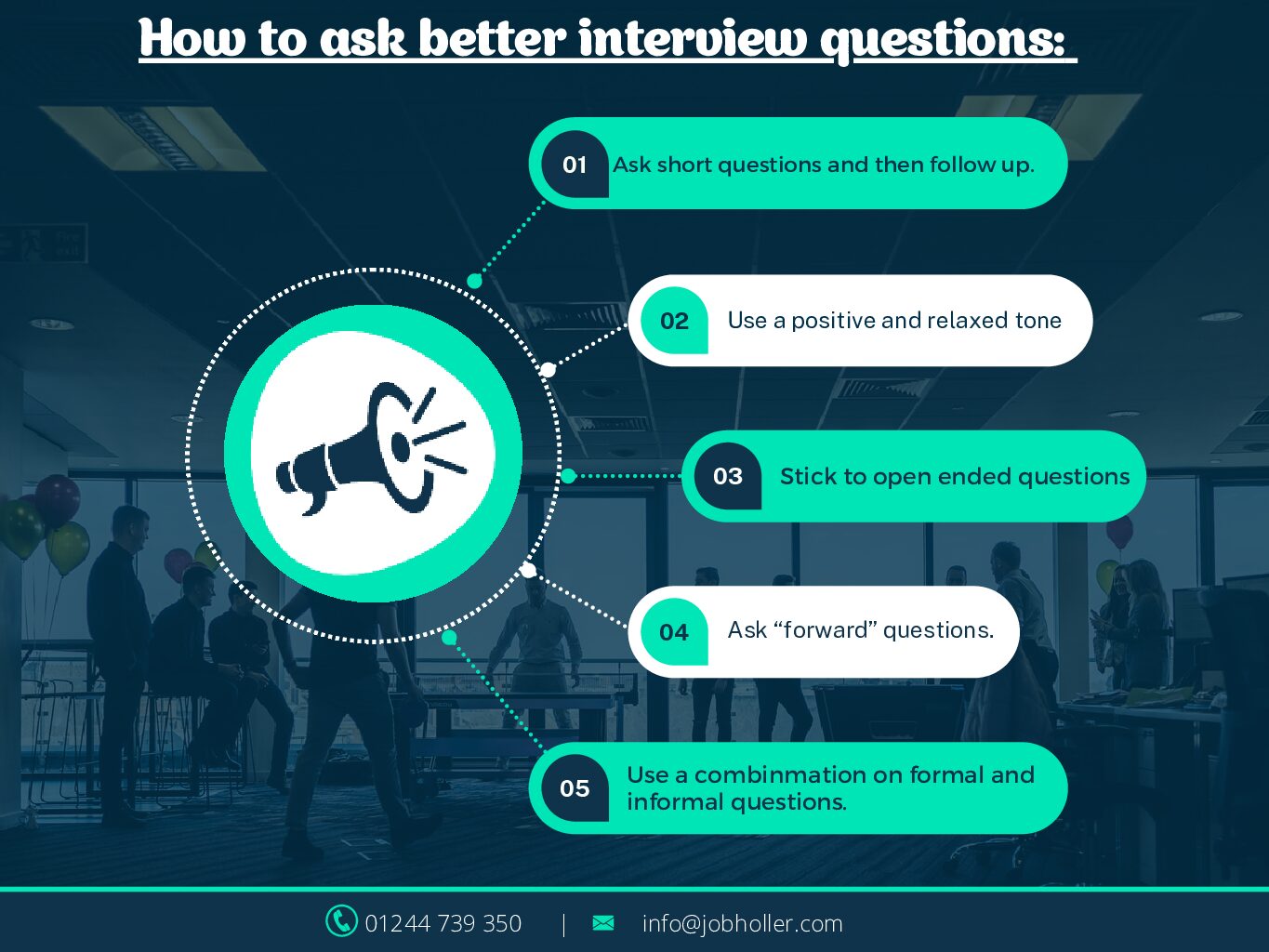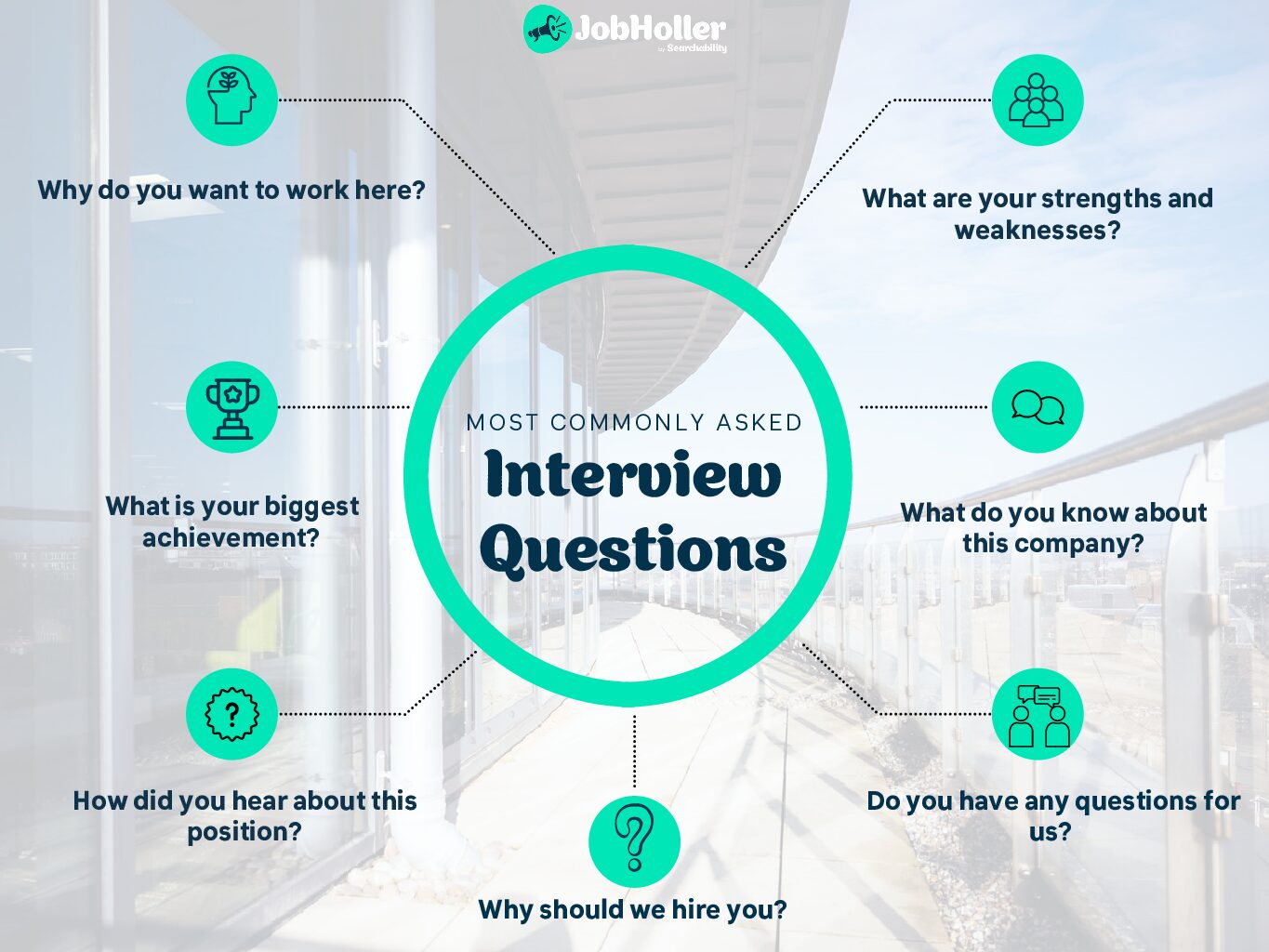Asking questions in an interview is an extremely powerful tool which is essential in finding the perfect candidates to fit your business. By choosing the best questions to include within your interview process, it is an efficient way to gather valuable insight into a variety of their personality traits and their overall suitability for the role. Almost 75% of employers admit they have hired the wrong person for a job at their company, which highlights the importance of avoiding this by asking strategic questions and getting the interview process right!
Here are some tips and prompts to help ask better interview questions and optimise the interview process.
Planning and preparation:
The key to asking better questions within an interview is to plan and prepare. When planning which questions to include in the interview, direct your questions towards the requirements to the role as this will allow effective evaluation of their suitability to the role. When planning, set out which traits and requirements you want the candidates to meet. This will allow you to focus your questions around finding out which requirements they do and do not meet, allowing you to avoid wasting time asking pointless questions. If the questions you ask do not address these job requirements, then it can be difficult to conduct a comparison between different candidates.
It can also be especially useful to set out which skills are a must have and which are not as essential for the role. Consider which hard and soft skills you are looking for from candidates and make a note before the interviews. For example, for a tech specific role, these could include:
Hard skills –
– Technical skills.
– Analytical skills.
– Coding ability.
Soft skills-
– Communication skills
– Creativity
– Problem solving
– Time management
Different roles will require different skillsets, for example senior and leadership roles will require far more experience and knowledge than an entry level role. This highlights the importance of planning ahead and tailoring questions to the role you are hiring for.
When planning and preparing for the interview, having the aim of building a rapport with the candidates in mind will allow the conversation to flow more naturally. Not only will this allow an impression of the candidate to be formed, it also helps to minimise feelings of anxiety or nerves that the candidate may be experiencing.
Assess a variety of skills:
Further to this, another way of improving your interviewing technique and asking better questions is to include a plethora of diverse questions. When planning, set out a few different skills-based questions you wish to ask, to help you assess how diversified the candidate’s skills are. Skills-based questions focus on an applicant’s proficiency and what their personality is like; questions aimed towards hard skills will provide an insight into their previous professional background whereas soft skills will reveal the individual’s personal characteristics. Another skillset to assess is the candidate’s critical thinking skills, this can be done through situational interview questions. These involve a hypothetical situation being presented to the candidate during the interview, which will be answered by the candidate giving an explanation as to how they would react in the hypothetical situation proposed to them.
Avoid asking overused, cliched questions:
Following the constant rise in technology and social media usage, thousands of question-and-answer articles have been published covering the most used interview questions and the desired responses. This means that it can be particularly challenging to know if the candidates’ responses are genuine or if they have simply found them online and memorised their responses. The solution to this is avoiding the overused questions where possible, by using more unique tailor-made questions it not only makes the interview more personal to the company, but also reduces the chances of the candidate having a pre-planned answer that may not be genuine from them or original. Below are some of the most asked interview questions, these can be useful to cover the basics and unveil some useful insights into the candidates’ motivations. However, when using these questions, it must be kept into consideration the fact that the candidate can very easily have revised exemplar answers to them, so they should not form the whole basis of the interviews.
Understand what you’re looking for in a candidate:
Having a set criteria of what type of person you wish to fill the role you are hiring for can be extremely helpful. By doing so it makes it a lot clearer what traits you are looking for and helps to minimise wasting time interviewing people who would not be suited to the role. As you only have a limited amount of time to interview someone, setting out key aims of the interview will allow you to avoid pointless questions. For example, you may want to find out about a candidate’s:
- -Future ambitions
- -Culture fit
- -Experience (personal and professional)
- -Personality
-
Another way of improving interview questions is by reflecting on previous employees you have hired, and which personalities suited and succeeded in that role. This will allow you to understand what you are looking for in the candidates before you interview them.
Interviews are tough for everyone but by preparing ahead and setting out strategic questions using the tips above, you should be set to hire the best candidates for the role!
Here at JobHoller, we are dedicated to helping implement and improve the Employer Branding of our clients’ companies. To Find out more about how to improve your interview process further contact a member of our team today on 01244 739 350 or email us at [email protected]!





